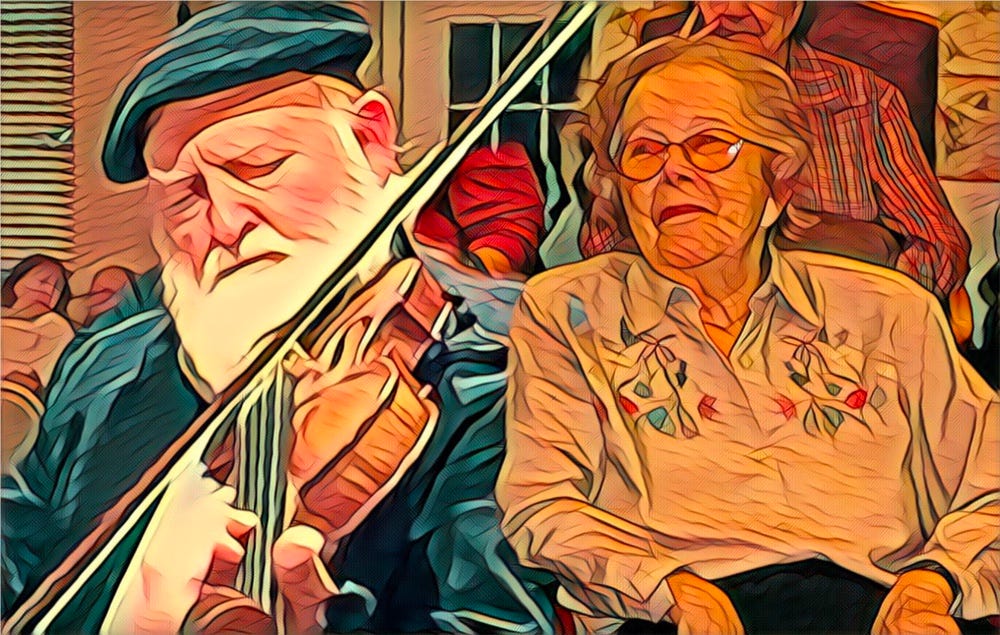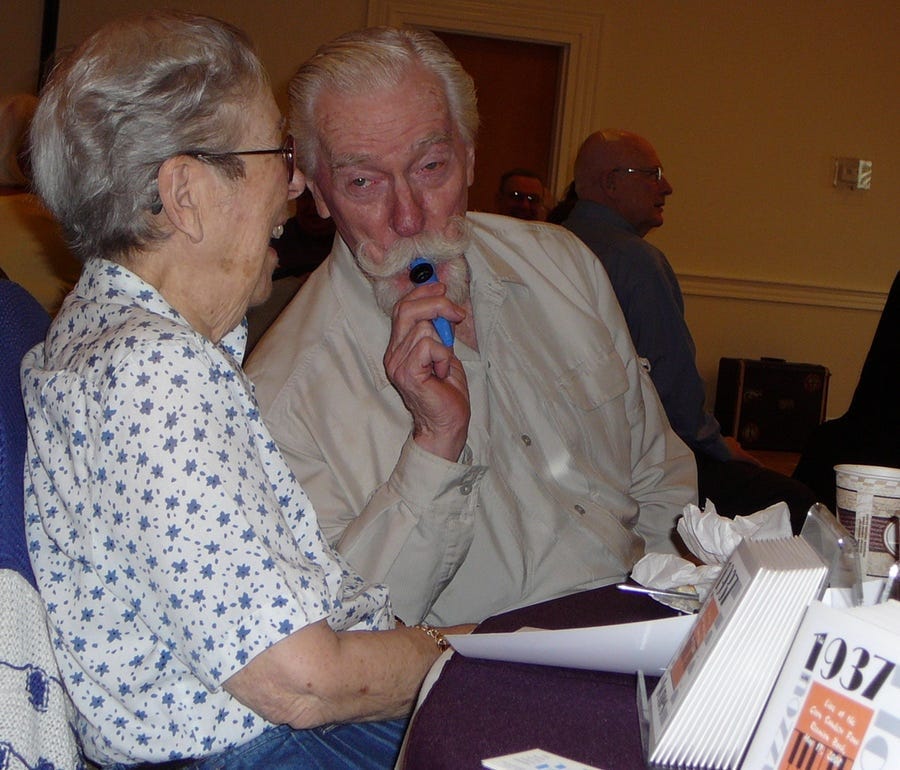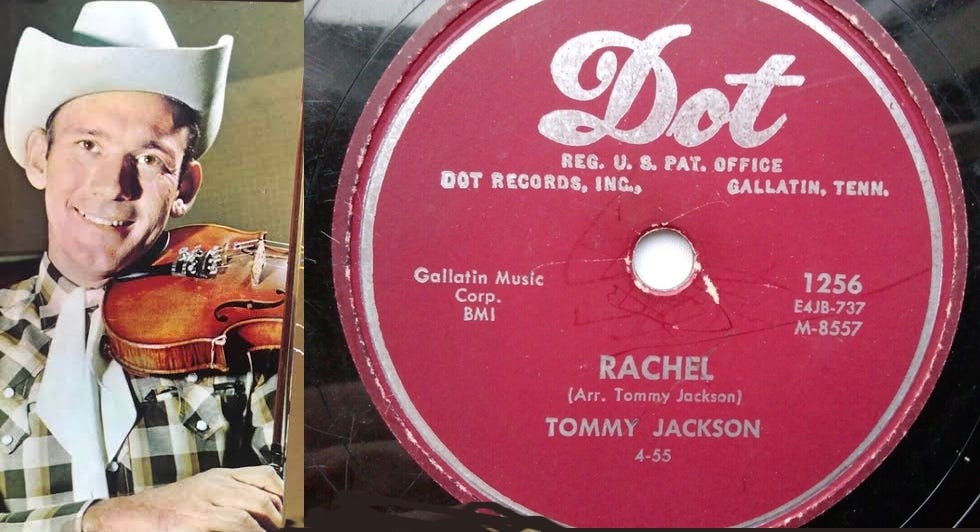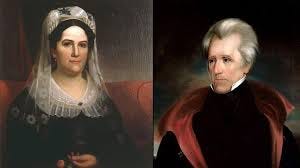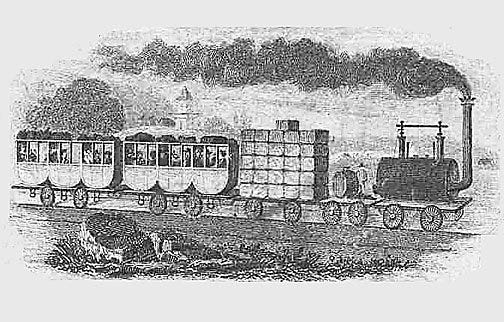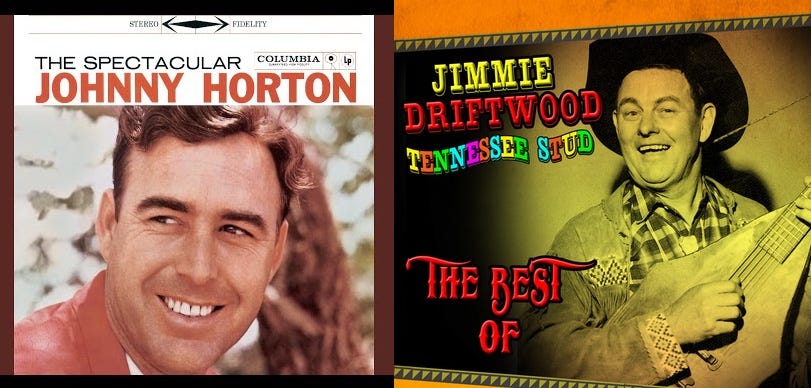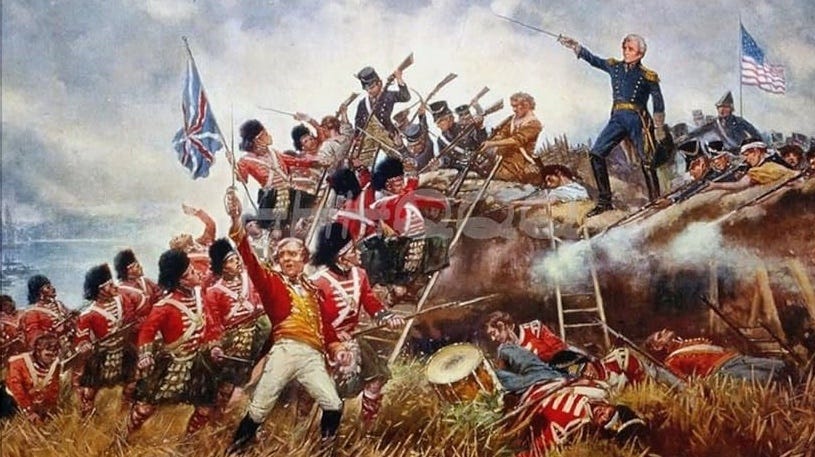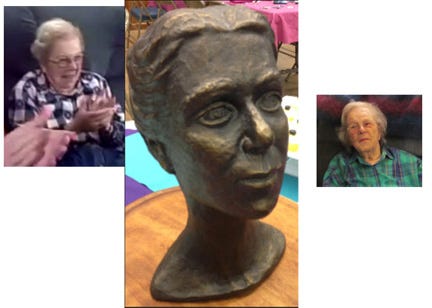Guests who attended a memorial service a dozen years ago this month might have been surprised by the jarringly joyful tunes The Flood chose to play on such a somber occasion.
However, the guys knew what they were doing. Moreover, the service’s honoree — Shirley Broh Davis, who died the previous month at age 96 — probably was smiling down and tapping her toe somewhere in the afterlife. These lively fiddle tunes were Shirley’s favorites.
As reported earlier, Shirley and her husband Norman became regulars at Flood gigs and weekly rehearsals from early 2009 onward.
They were especially aficionados of Joe Dobbs’ repertoire. In fact, whenever there's a lull in the action and the guys ask Shirley what she'd like to hear, she usually called on Joe to play his rendition of “Rachel,” as heard in this Winter 2012 session just a few months before Shirley’s death:
About the Song
“Rachel” has long been a popular tune in the fiddle/banjo bands from Virginia and North Carolina to Missouri. In West Virginia, the song is often associated with Braxton County fiddler Melvin Wine, whom Joe regularly cited before he played it.
Elsewhere, some remember Tommy Magness playing the tune over WSM radio back in the 1940s, but it was Tommy Jackson’s 78 rpm recording in 1955 that did much to popularize the melody, giving it especially wide currency in the South.
But under a different name, the song has a longer pedigree. Back in 1928, a group called “The "Red Headed Fiddlers," with A. L Steeley on fiddle and Red Graham on banjo, recorded the melody as "Texas Quickstep.”
To other players, the same tune has been called “The St. Louis Quickstep.” West Virginia fiddler Sam Hacker played it as “California Quickstep” while Kentucky’s Buddy Thomas did it as “Short’s Addition.”
But Rachel? Rachel Who?
Joe Dobbs used to say of the tune “Rachel” that it was named for Andrew Jackson’s wife. “He fought a dual over her,” he would add. “I’ve known a lot of pretty ladies, but I’ve never fought a dual over any of them.”
True enough, if you search the Internet, you’ll find a number of comments that the Rachel of “Rachel” is Rachel Jackson. The problem is that none of those posts offers a single bit of documentation for that claim.
In a report once published on a website called “Argy’s Point of View,” art historian Argy Nestor wrote, “When Jackson was running for president in 1828, his campaign train would stop at depots, and, before or after Jackson gave a speech, a fiddler would play ‘The Eighth of January’ and ‘Rachel,’ a tune written in honor of Jackson’s wife.”
History buffs quickly see problems with that paragraph. American railroading was in its infancy in 1828. In fact, Jackson had never been on a train when in 1833 when he famously became the first president to take a ride on one.
In light of that rather glaring error, it’s hard to accept Nestor’s other undocumented assertion, that “Rachel” was “a tune written in honor of Jackson’s wife.”
But What About…?
Meanwhile, the Nestor paragraph cites a second tune that a campaigning fiddler might have played in 1828. What about “Eighth of January”?
This melody, which many of us first met in Johnny Horton’s 1959 hit “Battle of New Orleans” (“In 1814 we took a little trip / Along with Colonel Jackson down the mighty Mississip'…”) Horton was covering Jimmy Driftwoods’ famous song built on a centuries-old melody.
Some say that just before the Jan. 8, 1815, battle, Americans heard British bagpipers play this tune, and that they later took it as their own. Others dispute that telling, saying the tune does not appear to have any direct parallels with melodies from the British Isles and may be a wholly American creation.
What isn’t disputed is that after the war, the melody was a hit among fiddlers across the young country. It was originally called "Jackson's Victory," but when Andrew Jackson fell from popular favor, it became known as "Eighth of January," thus commemorating the event rather than the man.
So, while “Rachel” might be just any old Rachel, “Eighth of January” is a genuine Jacksonian artifact.
Meanwhile, Back at the Memorial
Shirley Davis’s memorial service at Huntington's B'Nai Sholom synagogue featured several sets by The Flood, stories by Shirley’s husband, Norman, by her three children, some grandchildren, great-grandchildren and friends.
The Flood was asked to perform in the social hall as people gathered for dinner. The tables were beautifully decorated and each table contained a large photo of Shirley, sometimes with family members.
The dessert table contained a beautiful bust of a younger Shirley that she herself had sculpted.
Shirley is still very much with The Flood, her picture holding a place of honor is the band’s weekly rehearsal space.
More Joe?
Finally, if you’d like a little more Dobbs in your day, don’t forgot the band’s free Radio Floodango music streaming service, where a few clicks will let you tune in the Joe Channel for a randomized playlist of Dobbsization.




